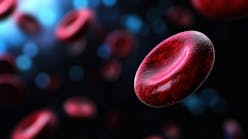Immunoassay manufacturer Randox Toxicology has developed an ELISA targeting UR-144, XLR-11 and additional synthetic cannabinoid compounds commonly found in new “Spice” and “K2” blends. These emerging compounds have been rapidly introduced to the designer drug market in response to legislation banning previously identified compounds. As a result, other screening methods have since become outdated, creating difficulties for toxicologists who require a new way to detect the novel drugs.
Together with Randox Toxicology’s JWH/AM2201 Synthetic Cannabinoids ELISA, the new UR-144/XLR-11 ELISA provides a comprehensive solution for the rapid detection of more than 55 current Synthetic Cannabinoids in urine, blood, and oral fluid. UR-144 and XLR-11 are chemically different structures from earlier generations of Synthetic Cannabinoids such as JWH-018, JWH-073, or AM-2201, and therefore are not detected by other immunoassay products.
Last week the United States Drug Enforcement Administration announced plans to schedule UR-144, XLR-11, and AKB48, which are often seen in falsely marketed “herbal incense” products. They are sold under various brand names, online, in “head shops,” and even in gas stations. The use of these products is widespread, and their detection is crucial in order to eradicate that use and its damaging side effects. The Randox Toxicology Synthetic Cannabinoids ELISA package allows toxicologists to ensure that samples positive with new drug blends are not concealed. A batch of samples can be economically processed with the 96 test kits, eliminating negative samples from further analysis. Read more about this new test, with links.





